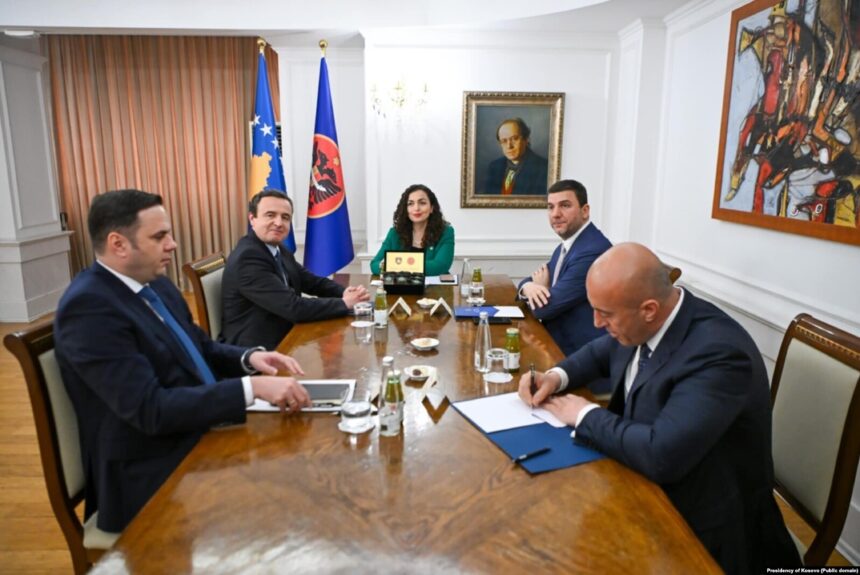Although Kosovo has yet to complete all the necessary steps following the February 9 parliamentary elections—most notably the constitution of the Assembly—the country has already launched preparations for another round of elections: the municipal ones, scheduled for October 12.
These upcoming local elections are increasingly being cited as a key reason why political parties remain entrenched in their positions, showing little willingness to compromise or cooperate to resolve the parliamentary deadlock. The inability to elect a Speaker of the Assembly continues to prevent the formation of a new government.
Members of Parliament such as Abelard Tahiri (Democratic Party of Kosovo – PDK), Besian Mustafa (Democratic League of Kosovo – LDK), and Time Kadrijaj (Alliance for the Future of Kosovo – AAK) reject the idea that the local elections are driving this stalemate.
Why Aren’t PDK, LDK, and AAK Cooperating with LVV?
According to Tahiri, there is no political calculation behind their stance. He says PDK has extended a hand for cooperation, particularly in agreeing on a neutral candidate for Assembly Speaker—excluding former ministers from the past government.
“PDK has done everything it can. We have no more tools left to resolve this deadlock. We’ve offered compromise even though we are not the first party and do not have the right to nominate the Speaker,” Tahiri stated.
Mustafa of LDK insists their unwillingness to form a coalition with Vetëvendosje (LVV) has nothing to do with local elections, but rather with LVV’s rhetoric and divisive political approach:
“It’s their language and their polarizing stance toward both society and the political scene. This has nothing to do with the local elections.”
Kadrijaj from AAK echoes similar sentiments, attributing the party’s refusal to work with LVV to what she described as LVV’s poor governance in the last mandate.
“We’ve made proposals that weren’t welcomed. Now it’s their turn to secure a simple majority,” she stated.
On the other hand, leaders of the winning party, LVV, including party chairman Albin Kurti, have repeatedly claimed to have extended offers to both LDK and the Social Democratic Initiative (NISMA), but without success.
Fatmir Limaj, leader of NISMA, believes what Kosovo needs now is not a temporary fix, but a comprehensive solution to the political deadlock.
The last local elections in Kosovo were held in October 2021. LDK emerged as the strongest party in terms of municipal wins, followed by LVV and PDK. Most candidates for mayors in the October 2025 elections have already been announced.







